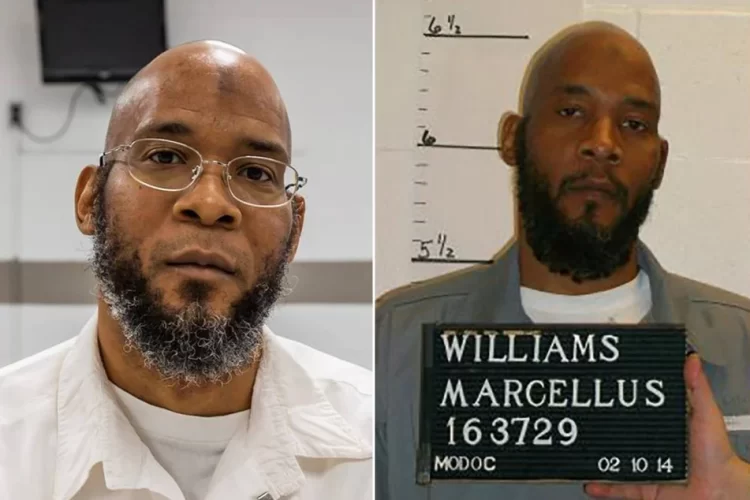Lisha Gayle’s family’s plea for mercy was ignored in Marcellus Williams execution.
A Missouri man, Marcellus Williams, was executed on Tuesday for the 1998 murder of Lisha Gayle, despite objections from both the victim’s family and the prosecutor, who had requested that his death sentence be changed to life in prison.
Marcellus Williams, 55, was found guilty of breaking into Gayle’s home, stealing her belongings, and fatally stabbing her during the burglary in 1998.
He was killed by lethal injection on Tuesday, September 24, even after his lawyers raised concerns about the jury selection process and how evidence was handled in his case.
Williams’ clemency request emphasized that Gayle’s family wanted him to receive a life sentence instead of being executed, stating, “The family defines closure as Marcellus being allowed to live. Marcellus’ execution is not necessary.”
While awaiting execution, Williams appeared to talk with a spiritual advisor. His son and two attorneys watched from another room, but no one from Gayle’s family was present.
Before his execution, Marcellus Williams released a statement saying, “All Praise Be to Allah In Every Situation!!!”
Missouri Governor, Mike Parson expressed hope that the execution would provide closure to Gayle’s family, saying that no juror or judge had found Williams’ claims of innocence credible.
The National Association for the Advancement of Colored People (NAACP), however, criticized the execution, with its president Derrick Johnson stating, “Tonight, Missouri lynched another innocent Black man.”
This was the third time Williams faced execution as he had received stays in 2015 and 2017.
His final appeals were quickly denied by both the governor and the state Supreme Court, with the U.S. Supreme Court also refusing to intervene.
Last month, Gayle’s family had agreed to a deal between the St. Louis County prosecutor’s office and Williams’ lawyers to commute his sentence to life in prison.
However, the state Supreme Court overturned this agreement after an appeal from Missouri Attorney General Andrew Bailey.
Williams was one of several inmates scheduled for execution across five states within a week.
Gayle, a social worker and former reporter, was 42 when she was killed.
Prosecutors stated that Williams broke into her home, grabbed a knife, and stabbed her 43 times after finding her in the shower.
He was later linked to the crime through stolen items and testimony from people who claimed he confessed.
Defense attorneys argued that the key witnesses against Williams had criminal records and were motivated by a reward offer.
They also noted that evidence at the crime scene, including fingerprints and hair, did not match Williams. A crime scene investigator testified that the assailant wore gloves.
Questions about DNA evidence prompted the St. Louis Prosecutor, Wesley Bell, to request a hearing to challenge Williams’ guilt.
However, DNA testing revealed that the DNA found on the knife belonged to people from the prosecutor’s office who mishandled the evidence.
Eventually, a deal was reached where Williams would plead no contest to first-degree murder in exchange for a life sentence without parole, which the judge approved, along with Gayle’s family.
However, Attorney General Bailey appealed, and the state Supreme Court ultimately blocked the agreement, leading to a hearing where the judge upheld Williams’ conviction and death sentence.
Williams’ attorneys also raised concerns about the fairness of the trial, noting that only one of the twelve jurors was Black.
The prosecutor, Keith Larner, had dismissed six of seven Black potential jurors, which Williams’ team argued showed racial bias. Larner defended his decisions, claiming the jury selection process was fair.
Marcellus Williams became the third inmate executed in Missouri this year and the 100th since the state reinstated the death penalty in 1989.























